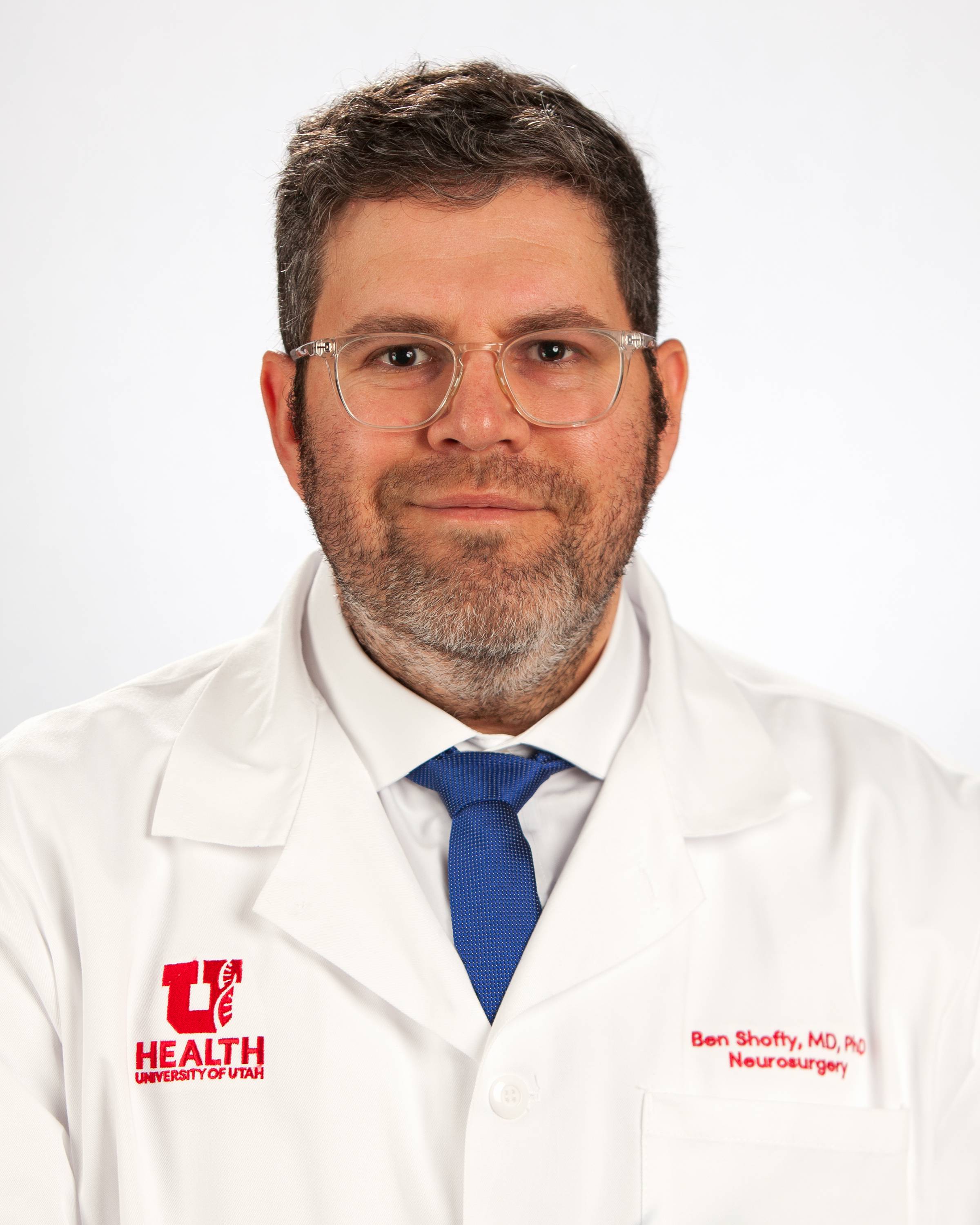Ben Shofty
E-mail:
Education:
B.S. 2008, Tel Aviv University of Sackler Faculty of Medicine Tel Aviv, Israel; M.D. 2012, Tel Aviv University of Sackler Faculty of Medicine Tel Aviv, Israel; Internship 2013, Rambam Health Care Campus (Rotating) Haifa, Israel; Ph.D. 2017, Technician - Israel Institute of Technology (Systems Neuroscience), Residency 2018, Tel Aviv University of Sackler Faculty of Medicine (Neurosurgery) Tel Aviv, Israel; Chief Resident 2020, Tel Aviv University of Sackler Faculty of Medicine (Neurosurgery) Tel Aviv, Israel; Fellow 2022, Baylor College of Medicine (Stereotactic and Functional Neurosurgery)
RESEARCH:
As a tenure-track Assistant Professor of Neurosurgery and a dedicated surgeon-scientist at the University of Utah, I am privileged to engage in groundbreaking research through intracranial recordings obtained from epilepsy patients. This approach provides an unparalleled insight into the workings of the human brain. My role as a functional neurosurgeon-scientist is not only my profession but also my passion and mission. It is the primary objective of my laboratory at the University of Utah to maximize the potential of these research opportunities while upholding the utmost standards of patient safety.
My expertise lies in conducting meticulous research with patients undergoing brain surgeries. This research is focused on exploring network-dependent higher cognitive functions, such as creativity and mind wandering, and developing novel therapeutic interventions for conditions like Obsessive-Compulsive Disorder (OCD), depression, and Post-Traumatic Stress Disorder (PTSD). In our laboratory, we employ advanced techniques, including local field potential and single-unit data acquisition from awake and actively engaged human subjects. This is complemented by the use of functional Magnetic Resonance Imaging (fMRI) to map large-scale cortical networks. Our approach is at the forefront of neurosurgical research, bridging the gap between clinical practice and cognitive neuroscience.

